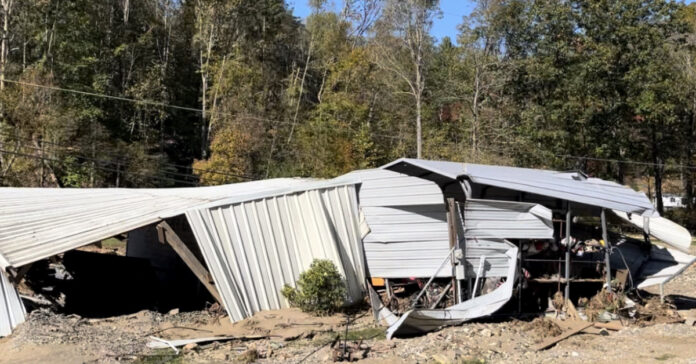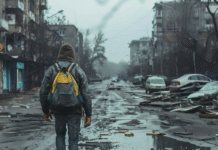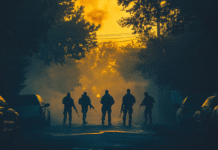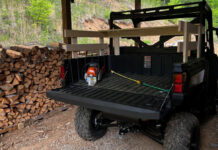I know I have been writing about Hurricane Helene for weeks now, with very little other coverage. That’s because our local conditions are so bad that what is happening in Israel, Iran, Ukraine, Wall Street or Madison Square Garden doesn’t seem to matter much in comparison, at least on our local and personal level. We are too busy caring for and reconnecting with local people to care about what happens thousands of miles away. I’ve heard it said, “All politics is local.” I’m here to tell you that disasters are too, even those that affect multiple states.
There are lessons in my posts for preppers. One of which is, prepare all you want for national or global disruptions, civil war, nuclear war, EMPs, financial collapse, etc., but your odds of getting caught in a local or regional disaster are higher. I would argue that your odds of recovery—assuming you live through it—are higher as well because of the availability of outside assistance. Another is: Don’t live in a narrow valley. There is a price to be paid for having a water view.
After today’s post, which I am sneaking in as an “extra” outside my normal M-W-F schedule, I am going to try to limit my hurricane-related posts to once per week and return to more general prepping content. That’s a goal, however, not a promise.
Disruption
It seem like every day someone who evacuated returns and stories have to be exchanged, help offered, and comfort given. Most every day we get a surprise—sometimes good and other times bad. Life is interrupted and our daily lives disrupted because of the storm’s aftermath, the closed restaurants and small businesses, the lack of meat at the Walmart, the people without phone service or Internet, and the rows of dump trucks and heavy equipment doing debris removal that frequently shut down one lane of the road, making travel take longer than normal. (At least we can travel, however.) Signs of what we lived through are everywhere; you can’t avoid them. Nor, I think, should we.
There are good stories, like the 92-year-old woman who survived by crawling up the mountain behind her house as the water rose, clinging to the fence. And the farmer who lost his barn to a landslide, but the dirt spared his wife’s grave, which mattered far more to him. (The latter story I had from the farmer himself.)
Unfortunately, the bad rumors and the ugly stories are more prolific. Like tales of trees with drowned bodies stuck in them and cars crushed by the river with drowned drivers and passengers still inside. Like the report that rescuers found a man buried in debris. “Just leave me to die,” he told the rescuers. They wanted to dig him out. “You don’t understand,” he said. “My wife and child were buried under me, and they stopped moving two days ago.”
Did that really happen? I don’t know, but the point is, it certainly could have. That’s how grim it can be when villages cease to exist and others are inaccessible.
The Dead and the Missing
We knew four people who died. Almost everyone we meet knows someone who died or are missing, and all the locals agree that the number of dead is being under reported, possibly because it is an election year. A friend we saw two days ago told me he called up a contractor he had worked with this summer to help repair his roof. “He’s gone,” said the man’s wife. “When will he be back?” my friend asked. Never. Their house had been destroyed by Helene. She had lived through it; he had not.
What do you say to that? “I’m sorry” doesn’t begin to cover it.
With no power, no internet, and no transportation, my credit card bill should have been low. It wasn’t, because of all the GoFundMe campaigns to which we contributed.
I’ve seen videos from parts of North Carolina that make it clear we were lucky. Our area was hit hard, but not as bad as Asheville and the surrounding area. I visited the Asheville River Arts District eight or ten years ago. I’m not a huge art fan, so all I remember is my wife enjoyed it more than I did. Now it is gone. The buildings were under 27 feet of water.
Of all the news coverage I’ve read, this article does the best job of capturing what it is like on the ground, both the devastation in the area and the resilience of the people. I am proud to count myself among them.







